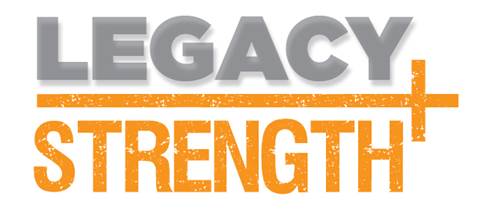Memorial Day is almost here, it came really fast this year didn’t it? Memorial day usually means the time of year for all white parties, days at the beach, and delicious BBQs and finally some time off! The BBQs of course are my favorite part, I mean I love food, and nothing beats good food, outdoors and sharing with friends and family.
When it comes to seasoning food, salt and pepper are the most frequently used seasonings in American cooking – most people never think to give a second thought as to the quality of the salt they use in their cooking because it is so common. You probably eat more salt in a day than you might think! What are the differences in the quality of salt? Can you actually use a better salt in your diet? Where the hell do you get it????
Why you need salt –
- Salt aids in balancing blood sugar levels
- Salt is needed for the absorption of food particles through the intestinal tract
- Salt can aid in the prevention of muscle cramps
- Salt clears th lungs of mucus and sticky phlegm, particulary in those suffering from asthma and cystic fibrosis
- Salt is vital to the extraction of acidity from the cells of the body, particularly the brain cells!
- Salt is needed in order to make the structure of the bones firm!
According to a recent article on the topic; “The sodium and chlorine in salt are electrolytes, minerals that conduct electricity in our fluids and tissues. The other main electrolytes are potassium, calcium and magnesium. Our kidneys maintain the balance of electrolytes and water by regulating the fluids that we take in and pass out of our bodies. If this balance is disturbed, our muscles, nerves and organs won’t function correctly because the cells can’t generate muscle contractions and nerve impulses.
Too little salt, or hyponatrameia, is one of the most common electrolyte disturbances. You can lose sodium when you sweat or urinate excessively, experience severe vomiting or diarrhea, or when you drink a lot of water (which is why sports drinks contain electrolytes). Ultimately, hyponatremia can lead to brain swelling and death.
If you have very strong cravings for salt, you may be dehydrated or lacking one of the minerals in salt. But an extreme salt craving can be a symptom of Addison’s disease (a hormonal disorder) or Barrter’s syndrome (a rare kidney disorder).”
So, yes there is definitely a physiological need for this in our systems that we must keep balanced! We definitely have to make sure we are getting the right type of salt when we eat.
Refined vs Natural Salt
There is a BIG difference between refined white salt found in the grocery store, and unrefined natural sea salt. You can see the differences in the pictures below.
Refined salts typically contain aluminum based anti-caking agents. Aluminum is linked with heavy metal toxicity and is a possible cause of Alzheimer’s disease. Other additives to plain old white table salt include dextrose (sugar) and sodium silico-aluminate. Believe it or not, these are added to prevent the refined salt from changing color through the chemical processing. These additives have been scientifically linked to kidney problems, hypertension and mineral malabsorption.
Natural salt . . . no chemicals, also full of trace minerals that are typically stripped out by the bleaching process of table salt. So you get more for your seasoning with a natural salt!
WHAT DO YOU DO?
Okay so processed salt has some issues and additives that can cause you some trouble down the line. Natural salt is way better anyway you look at it.
According to another article I came across, famed strength coach Charles Poliquin has noted that salt is a lot like bread: there’s the over-processed, chemical-laden, overly-refined white stuff you should avoid (table salt), and the natural healthier stuff (sea salt). Poliquin thinks that those of us who train hard and eat lots protein need more salt, not less, in our diets, as long as that salt is the good stuff, full of minerals.
Suffice it to say, I personally don’t avoid salt anymore, but have definitely learned a lesson and only buy the good stuff. The “good stuff” is always colored instead of being bleached white. The pigmentation comes from those natural trace minerals that are essential for good health, it’s real salt.
Going with that, I have been using some Redmond Real Salt. This is a kosher pink sea salt that fits all the guidelines outlined by Poliquin and has none of the additives.
This Real Salt is extracted in Redmond Utah from deep within the earth. These deposits came from evaporated sea beds that had been covered over and protected by volcanic ash about, oh, a bajillion, years ago. It’s crushed and screened, but unbleached, unheated, and otherwise unrefined, containing OVER 50 trace minerals.
The taste is great, not bitter and not overly salty. (Cooking with salt isn’t supposed to make food salty anyway; rather, salt enhances and brings out the natural flavor or foods.)
I picked up a 16oz bag for about $6 on Amazon.com. You can also probably find it at your local health food stores as well.
I have been using it for over a year, I took the taste test and was wowed by the difference between the typical table salt and the Redmond Real Salt. . . BIG DIFFERENCE!
Try it out!
Stay strong,
Joey







